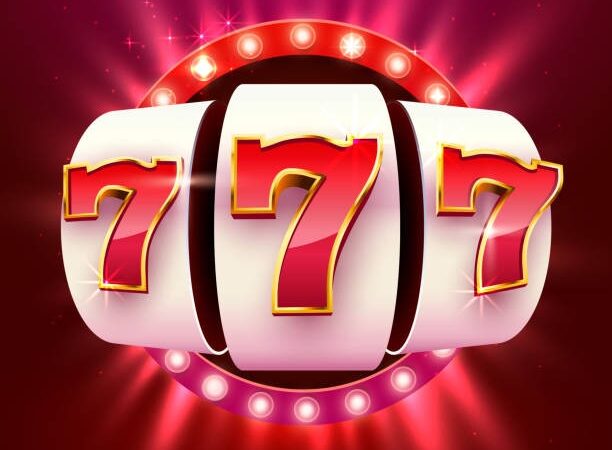Why Should You Work with an Emotional Healing Coach Instead of a Therapist?

If you often feel alone, confused, or emotionally neglected in your romantic relationship, chances are you’re involved with someone who is emotionally unavailable. An emotionally unavailable person struggles to connect on a deep, emotional level. They may seem cold, dismissive, or inconsistent with their affection. Over time, this kind of relationship erodes your self-worth and can lead to anxiety, depression, or emotional numbness. Learning how to recognize and heal from an emotionally unavailable relationship is the first step toward emotional freedom.
You might notice signs such as fear of commitment, a partner who avoids vulnerability, or someone who makes you question your worth. In such relationships, you likely feel like you’re giving more than you receive. These emotional dynamics don’t just heal on their own—they require active recovery, introspection, and support. But here’s the question: should you work with a therapist or consider an emotional healing coach?
What Makes an Emotional Healing Coach Different from a Therapist?
The main difference between a therapist and an emotional healing coach lies in their approach and focus. Therapists often work with clinical diagnoses, delve into past traumas, and follow structured mental health treatment plans. They are licensed professionals who are trained to address mental health disorders, trauma, and other psychological conditions.
In contrast, an emotional healing coach is focused on helping you develop emotional resilience, improve your self-awareness, and reframe your experiences so you can move forward with clarity and confidence. Emotional healing coaches often work with clients who are feeling stuck in patterns of emotional pain but may not require medical or psychiatric intervention.
If you are trying to heal your heart from an emotionally unavailable relationship, an emotional healing coach might be the right guide. Their tools are more hands-on, practical, and action-oriented. Many clients feel empowered by the structured yet supportive way coaches guide them through healing without medicalizing their emotions.
Why Choose an Emotional Healing Coach for Relationship Recovery?
Healing from emotional neglect isn’t just about revisiting the past—it’s about reshaping the future. That’s where a coach shines. Here’s why many individuals prefer an emotional healing coach:
1. Goal-Oriented Sessions
Unlike traditional therapy that can feel open-ended, coaching sessions are usually centered on clear objectives. An emotional healing coach helps you define what healing looks like for you—whether it’s regaining your confidence, setting healthier boundaries, or learning to trust again.
2. Faster, Actionable Results
Many clients report feeling results within just a few sessions. That’s because coaches often use practical exercises, journal prompts, guided meditations, and accountability techniques that empower clients to take charge of their emotions. If you’re learning how to recognize and heal from an emotionally unavailable relationship, these tools can offer daily breakthroughs.
3. Forward-Focused Healing
Coaching emphasizes the now and the future. Instead of spending months unraveling childhood experiences, an emotional healing coach helps you understand your emotional triggers and then create new emotional responses. You build emotional intelligence rather than dwell in pain.
4. High-Level Accountability and Support
Coaches provide consistent check-ins, goal-tracking, and emotional support between sessions. This level of involvement ensures you’re not alone as you heal your heart and rebuild your sense of self-worth after emotional abandonment.
Can an Emotional Healing Coach Help You Rebuild Confidence?
Absolutely. One of the most profound results of working with a coach is the transformation of your inner dialogue. Emotional healing coaches are trained to help you shift negative self-talk into empowering beliefs. If your past relationship made you question your value, a coach can help you rebuild your confidence by:
- Identifying limiting beliefs
- Cultivating emotional self-awareness
- Teaching you how to validate your own emotions
- Helping you rebuild trust in yourself and others
As you learn how to recognize and heal from an emotionally unavailable relationship, you’ll begin to set stronger boundaries and attract healthier relationships in all areas of life.
When Should You Choose Coaching Over Therapy?
If you’re not dealing with a clinical mental health condition and feel emotionally stuck rather than psychologically unwell, coaching may be a better fit. Coaching is especially effective if:
- You want tools to overcome emotional burnout
- You’re seeking clarity and empowerment post-breakup
- You need support to move forward from emotional wounds
- You prefer a structured, non-clinical approach
That said, if you’re dealing with severe trauma, PTSD, addiction, or mental health disorders, a licensed therapist is the better choice. There’s also no rule that says you can’t work with both. Many people find that combining therapy with coaching creates a powerful path to healing.
How Does Coaching Help You Heal Your Heart?
An emotional healing coach creates a safe and structured space where you can openly process emotional pain and build emotional resilience. If you’ve been in an emotionally unavailable relationship, your coach can help you:
- Identify emotional patterns and triggers
- Reconnect with your inner needs
- Set personal and relational boundaries
- Replace guilt with self-compassion
- Build a vision for your life post-breakup
Each session empowers you to move one step closer to peace, self-love, and confidence. The goal is not just to heal your heart—it’s to emerge stronger, wiser, and more emotionally whole than ever before.
What Should You Expect in Your First Coaching Session?
Your first session with an emotional healing coach typically involves a deep dive into your emotional goals, past relationship experiences, and desired outcomes. Expect to answer questions like:
- What kind of emotional support do you need right now?
- What patterns do you want to break?
- How do you want to feel in future relationships?
- What’s been holding you back emotionally?
The coach will likely offer customized tools and techniques, such as guided emotional release exercises, energy-clearing practices, or mindset coaching to support your healing journey.
Is an Emotional Healing Coach Right for You?
Ask yourself: Do you want to move on, or do you want to move forward with purpose and strength? If you’re tired of repeating emotional cycles and are ready to take actionable steps toward healing, then working with an emotional healing coach might be your ideal next step.
They are not here to label you—they’re here to liberate you. With the right emotional healing coach, you can break the bonds of emotional unavailability, redefine your worth, and create a life rooted in authenticity, love, and self-respect.
Final Thoughts
While therapy remains an essential tool for many people, those seeking a more empowering, future-focused approach often find transformation through coaching. If you’re trying to heal your heart after a toxic or emotionally unavailable relationship, consider the structured support of an emotional healing coach. With their guidance, you can finally let go of the pain, reclaim your power, and build a life rooted in emotional freedom and self-love.
Start your journey today—because you deserve more than just healing. You deserve to thrive.



